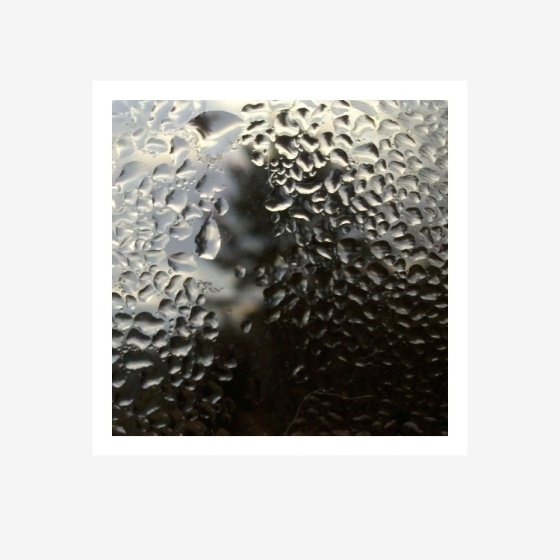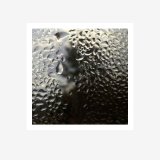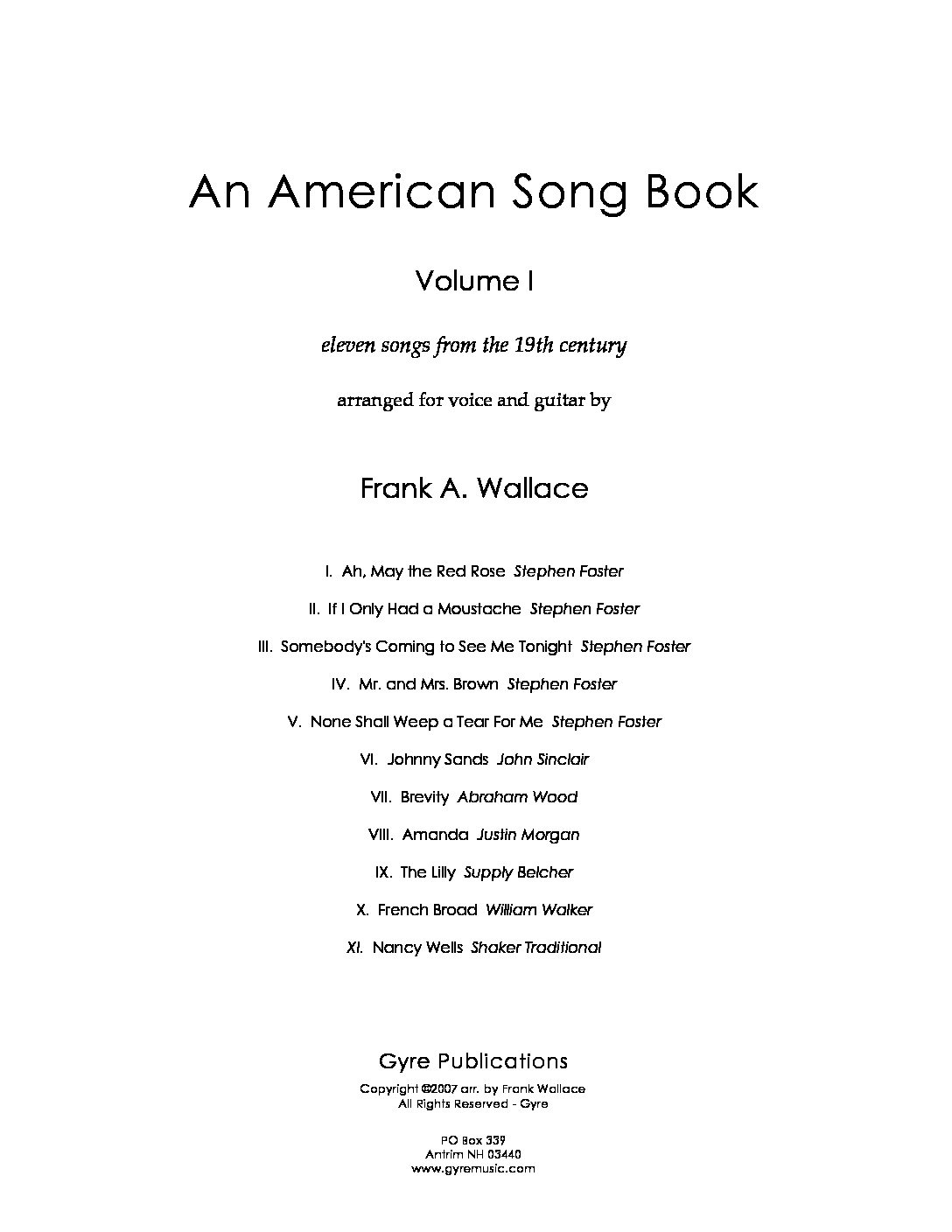An American Song Book, vol. I | arr. by Frank A. Wallace
arranged by Frank A. Wallace
eleven songs from 19th century America by Foster, Wood, Belcher, Morgan, anonymous
SUGGESTED DONATION: $8.00
Instrumentation: guitar and medium voice
Duration: 20 pages
Difficulty level: Moderate; mostly standard chords for guitar with some melodic elements
All Gyre compositions are ASCAP
Copyright ©2010 Frank A. Wallace
Cover photography and design by Nancy Knowles
All rights reserved.
Tweet
II. If I Only Had a Moustache — Stephen Foster
III. Somebody’s Coming to See Me Tonight — Stephen Foster
IV. Mr. and Mrs. Brown — Stephen Foster
V. None Shall Weep a Tear For Me — Stephen Foster
VI. Johnny Sands — John Sinclair
VII. Brevity — Abraham Wood
VIII. Amanda — Justin Morgan
IX. The Lilly — Supply Belcher
X. French Broad — William Walker
XI. Nancy Wells — Shaker Traditional
No one knows for sure exactly why or when the traditional Renaissance and Baroque double courses, or pairs of strings, were dropped in favor of the single strings of the six string guitar, but by the year 1807, this new guitar had established its popularity in the musical capital of Vienna. In that year, when Schubert was a boy of ten, the thriving musical community saw the publication of Beethoven’s famous song Adelaide in guitar transcription as well as numerous guitar works of Giuliani, Molitor, and Aguado. As part of Schubert’s efforts to become known as a song-writer, his publisher, Diabelli (a guitarist himself), chose to issue four of his first songs in guitar versions in 1821 in order to appeal to the large contingent of guitarists in Vienna.
The 19th century romantics loved the guitar. Paganini, whose fame was made on the violin, was also an incomparable guitarist. . . in fact, those who heard him on both instruments had a hard time deciding which he played best. In 1821 he and Rossini dressed up as two female singing beggars and strummed their way on two guitars through the streets of Rome during carnival. Berlioz’ principle instrument was the guitar – he never played piano – and in true romantic fashion he would often take his guitar up to the mountains for long rambles, serenading the peasants and inventing wild recitative from Virgil with strange harmonies on his guitar. His friend, French playwright Ernest Legouvé wrote: “The guitar embodied all instruments for him, and he was very good at it.”
In the world of song, Stephen Foster and Franz Schubert seem in some ways to be polar opposites – the genius of Foster being his simplicity and accessibility; the genius of Schubert being his subtlety, his depth, and the fantastic colors he weaves into his accompaniments. But the common thread that has caused both composers to live on in the hearts of song lovers everywhere is their gift for melody. America’s first professional songwriter, Foster was born in Pittsburgh and lived in Pittsburgh, Cincinnati and New York. He never lived in the South – he wrote his “plantation” songs as a serious effort to lure minstrel players into a sympathetic portrayal of blacks.
Foster was self-taught, tirelessly studying songs of all types, from Scottish ballads to German lieder, Italian opera and African-American spirituals. In response to the rising popularity of the guitar, he arranged many of his songs with guitar accompaniment. He also wrote the lyrics to his songs, lyrics that speak movingly of universal emotions and situations, some of them hilarious as you shall hear.
Frank Wallace, 19th century guitars
recordings from an unreleased CD titled Pastiche done in 2001 for Gyre.


